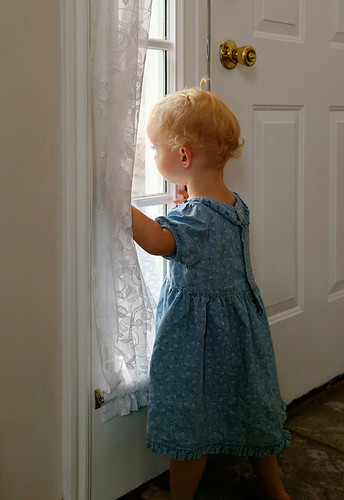Part of my journey, spiritually, has been to move from a fundamentalist upbringing, to an Evangelical / post-conservative theological formal training, and then toward “the mysteries” (i.e. mystic tendencies). What brought me there? Tremendous pain. I usually don’t talk of it for too long. Maybe there’s a memoir in me that should come to light, but the progression is palpable.
In “the mysteries” this means that I don’t think of suffering as a problem, sorrow as un-wellness, or bouts of profound unhappiness as a sign that I have too little faith. In fact, most of the biblical characters were kind of tortured souls. It’s a more recent construct that we should think the life of faith has a “Sunshine Mountain” feel to it.
So, I wanted to write out a few thoughts about what Mark Lepper posed out there on the Twitter-verse (see lower image).
My initial Twitter response (you see below) was less than 140 characters, so I thought I’d add a bit more.
@thelepper Nah. That notion helps us cope, but we can’t possibly verify it. It’s part of “the mysteries”
For just a moment…
Imagine your child kills himself. The most horrid thought (you needn’t linger there).
In the first few days, probably 20 people will tell you, “Everything happens for a reason.” Or, they’ll say, “All things work together for good…” You know the verse, right?
Rubbish.
(Probably most people don’t realize how out of context that verse is used that way. Erroneously they utilize just a part of it as a “band-aid platitude” to offer kindness.)
There are a great many things that have no good explanations and will not. The reasons won’t be revealed later either. On earth or in heaven. It really doesn’t work that way. And it really shouldn’t. Otherwise movement toward maturity would be at stake.
Really, it would be too confusing for us that God would answer these questions, so don’t count on an inquiry at the “ask the author” line in heaven, my dear friends.
When the pain of suffering wallops you and you can’t shelve your doubts long enough to work through the real hardship of it, one temptation is to consider that God must be malevolent or AWOL, instead of considering that we can’t possibly know the answer.
It is in the unknowing that we become enlightened to the ways of God.
It seems the two most common tactics (ways of coping) in tragedy are…
1. Try to believe that something horrible or evil has some sort of good redemptive reason, or will eventually come to something good because of it.
(Though it is true that God makes it his business to redeem everything…eventually….somehow…. we can’t think of this backward when we come into pain, and try jumping ahead. Pain can serve a point.)
2. Realize that so much is unexplainable and let our hope and faith erode or dissolve.
But there is a third option. And maybe more than just one more (you can let me know). Another way that’s been employed since humans have had optimism and spirituality (read: a very long time) is…
“the way of the mysteries”. And it’s not a cop out.
It’s farsighted. It’s a perspective that holds that the beauty we witness in this world is almost out of place in the nastiness and madness of it. It’s the idea of (good) ideals we all seem to possess that point to a greater, underlying and sustaining beauty and goodness obscured by the ways of the world, suffering, and the hardships of being human.
To embrace our situation as the mystics do is to not shun hardship or revel in it, but rather to let the pain refine us and make us wise. Oh, and it hurts. It hurts like hell. And it, in some real sense, beats the hell out of us, and makes us endearing and compassionate. Beautiful.
The trouble is that if we’re satisfying with answers like, “Hey, friend! Don’t worry there’s a reason this horrible thing is happening,” then we are of very little good to those who are truly suffering.
In fact, our notions of “reasons” are often so pale and wanting. They just couldn’t possibly be sturdy enough. They don’t reveal what is legit and accurate.
Only when we can sit there alongside in the pain of those who hurt, and even take a part of the sorrow itself do we find we can make our way, honestly. And too, we must sit in our own pain. It’s uncomfortable. It’s dark. Sometimes horrid.
But to have the permission to hurt can send us toward wellness. It shows us that great sorrow comes on powerfully, and hurts badly, but does not have the final word. In the process of living well and deeply do we like a tender shoot become oaks of maturity and grace.
Please friends, be careful and don’t make a mockery of pain by disrespecting it or minimizing it (for yourself or anybody else). There is no human life without pain. There too is no growth without it. That’s the bit about incarnationality: The divine enters the human experience. That is our model.
So very deeply have I hurt, but now deeply can I love.
It’s true that redemption is chosen.
To be chosen it must first be acknowledged.
(that’s my longer answer)









